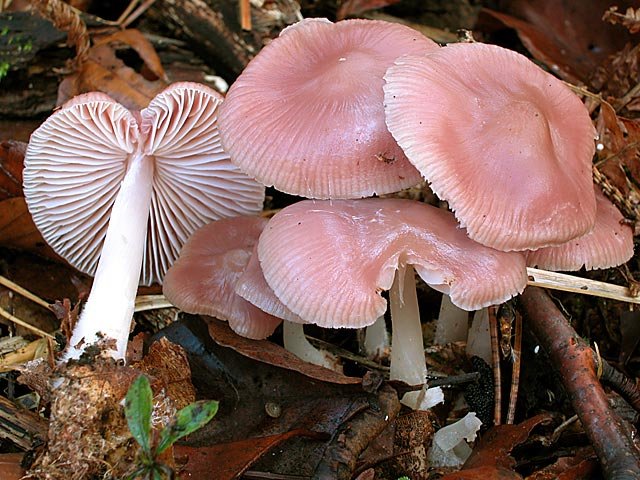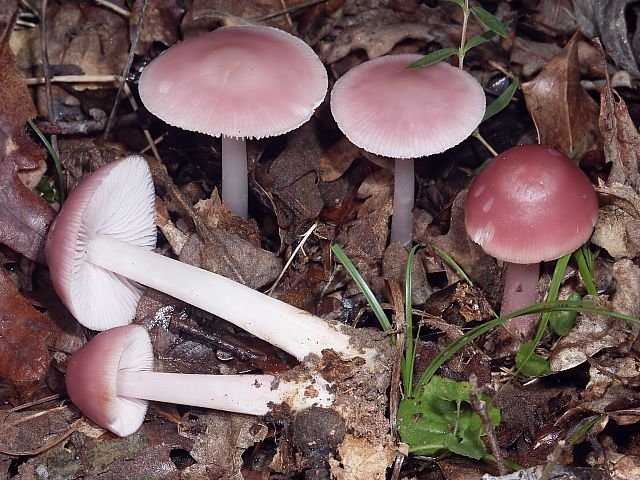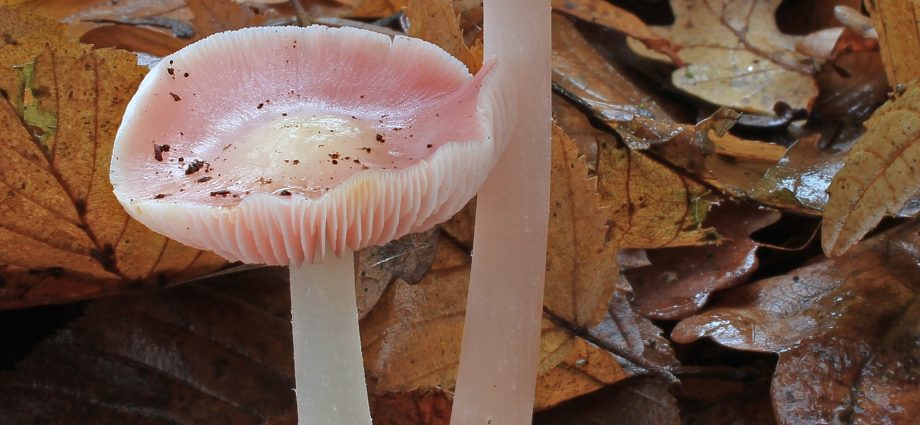Contents
Mycena pink (Mycena rosea)
- Division: Basidiomycota (Basidiomycetes)
- Subdivision: Agaricomycotina (Agaricomycetes)
- Class: Agaricomycetes (Agaricomycetes)
- Subclass: Agaricomycetidae (Agaricomycetes)
- Order: Agaricales (Agaric or Lamellar)
- Family: Mycenaceae (Mycenaceae)
- Genus: Mycena
- Type: Mycena rosea (Mycena pink)

Pink mycena (Mycena rosea) is a mushroom, which is also called the short name pink. Name synonym: Mycena pura var. Rosea Gillette.
External description of the fungus
The diameter of the cap of the generic mycena (Mycena rosea) is 3-6 cm. In young mushrooms, it is characterized by a bell-shaped shape. There is a bump on the hat. As the mushroom matures and ages, the cap becomes prostrate or convex. A distinctive feature of this type of mycena is the pink color of the fruiting body, which often turns into fawn in the central part. The surface of the fruiting body of the fungus is characterized by smoothness, the presence of radial scars, and watery transparency.
The length of the stem of the fungus usually does not exceed 10 cm. The stem has the shape of a cylinder, its thickness varies in the range of 0.4-1 cm. Sometimes the mushroom stem expands to the base of the fruiting body, may be pink or whitish, and is highly fibrous.
The flesh of the pink mycena is characterized by a rich spicy aroma, white in color, and very thin in structure. The plates of pink mycena are large in width, white-pink or white in color, rarely located, grow to the stem of the fungus with age.
Spores are characterized by colorlessness, have dimensions of 5-8.5 * 2.5 * 4 microns and an elliptical shape.

Habitat and fruiting period
Abundant fruiting of pink mycena occurs in summer and autumn. It starts in July and ends in November. Mycena pink mushrooms settle in the middle of fallen old foliage, in forests of mixed and deciduous types. Most often, a mushroom of this species settles under oaks or beeches. Occurs singly or in small groups. In the southern regions of the country, the fruiting of pink mycena begins in May.
Edibility
Data on the edibility of pink mycena (Mycena rosea) from different mycologists are contradictory. Some scientists say that this mushroom is quite edible, others say that it is slightly poisonous. Most likely, the pink mycena mushroom is still poisonous, since it contains the element muscarine.
Similar species, distinctive features from them
The appearance of pink mycena is very similar to pure mycena (Mycena pura). Actually, our mycena is a type of this fungus. Pink mycenae are often confused with pink lacquer (Laccaria laccata). True, the latter does not have a rare flavor in the pulp, and there is no convex area on the cap.










